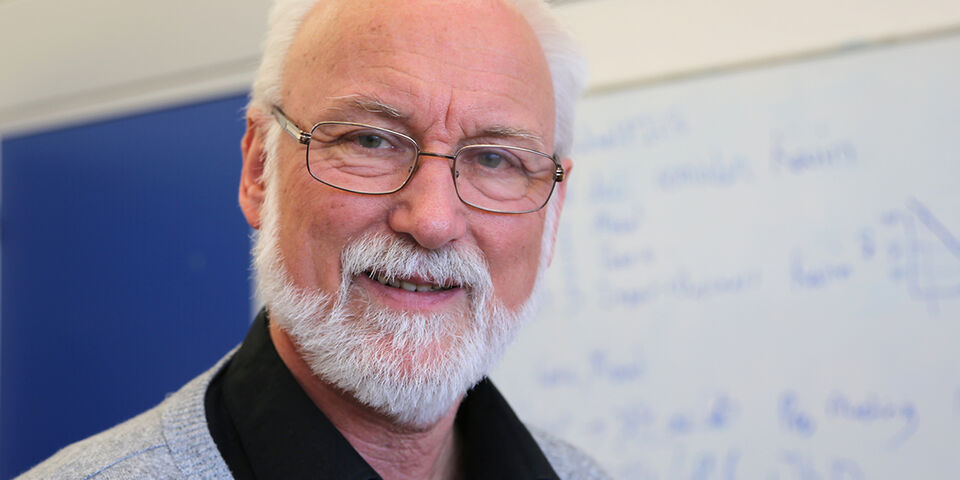Half the awards at international photonics conference go to Eindhoven
Tuesday 7 March TU/e professor Meint Smit received the Lifetime Achievement Award at the PIC International Conference in Brussels. Smit is one of the founders of integrated photonics; semiconductor circuits that use light rather than electricity. The TU/e spin-outs Smart Photonics and Effect Photonics also won in Brussels in their respective categories Advances in Manufacturing and Advances in Integration. This meant that half the PIC Awards this year will find homes in Eindhoven.
The PIC International Conference is an annual large, global conference for photonics R&D, where the PIC Awards are presented. The winners are decided by online voting from a shortlist of candidates.
Since 1981 Meint Smit has been working on the development of optical chips for transmitting data using light signals. He has not only worked on the technology for developing the essential building blocks for this but has also helped lay the basis for an R&D ecosystem that is needed to get ‘photonics’ successfully to market. Smit is one of the driving forces behind the development of standardized manufacturing processes using a ‘library’ of standard components for photonic integrated circuits. The TU/e professor was group leader for many years in the successful research school COBRA, which has since been incorporated within the new Eindhoven Institute for Photonic Integration.
Smart Photonics, founded in 2012, is a ‘pure-play foundry’ for the production of optical chips. A pure-play foundry exclusively produces chips for customers on the basis of their designs. In the micro-electronics world this is a common model but in photonics this Eindhoven company is the first of its kind.
In 2010 Effect Photonics began life as a developer of optical chips. Its first chip, for transporting very large data streams at a very low level of energy consumption, has since been introduced in the market.
Optical chips offer important novelty over electronic chips, thanks to the range of added possibilities they offer and due to their higher speed and much lower energy consumption. The market for integrated photonics, and related products, is expected to be worth hundreds of billions of euros in time. The European Union has thus made photonics one of the five ‘Key Enabling Technologies’, technologies with the biggest economic potential and of great significance for societal challenges.
Source: TU/e press team


Discussion